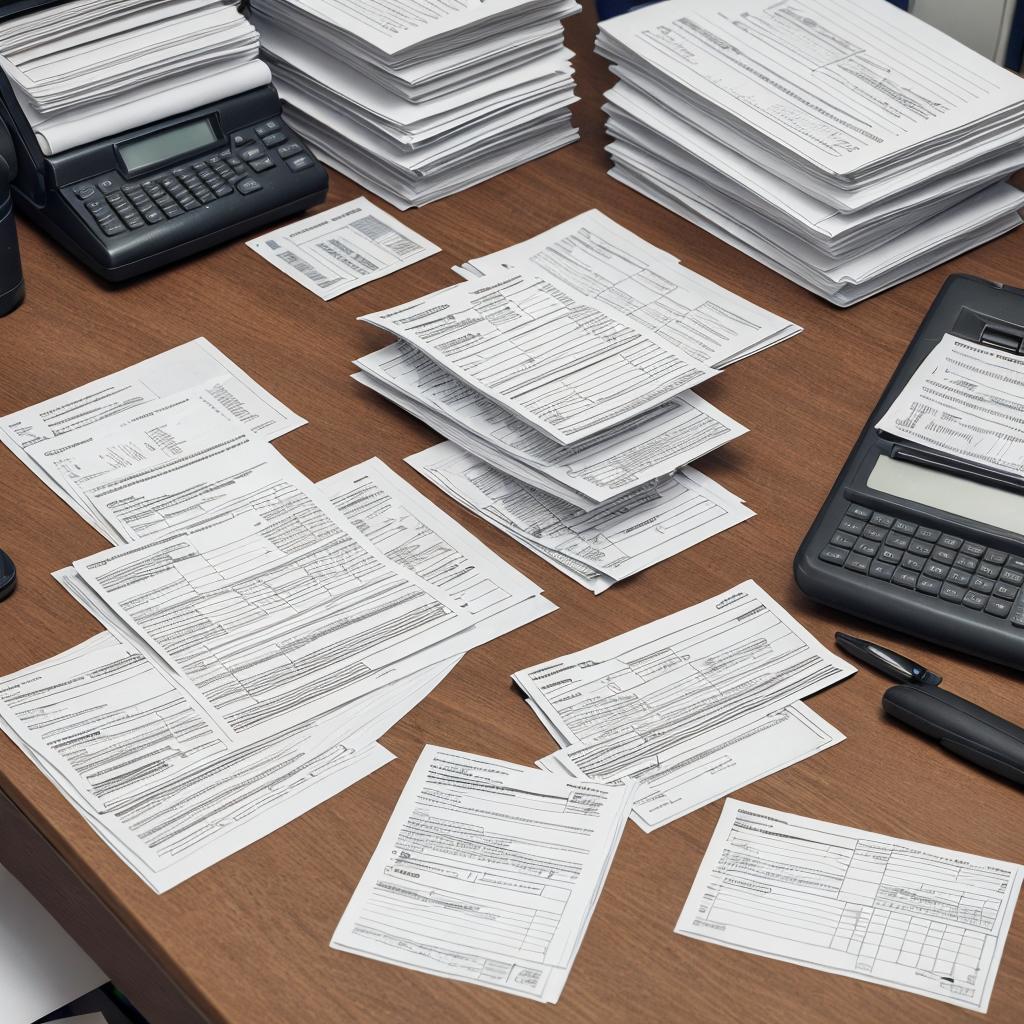Required Paperwork for Your Medicaid Application Guide

Did you know that over 70 million Americans rely on Medicaid for their healthcare needs?
If you’re considering applying for Medicaid, it’s crucial to understand the required paperwork.
This guide will walk you through the necessary documents you need to gather, from proof of identity and residency to financial documentation and medical records.
By following this comprehensive guide, you’ll be well-prepared to navigate the Medicaid application process and ensure your eligibility.
Key Takeaways
- Eligibility for Medicaid requires meeting income guidelines, U.S. citizenship or qualified immigrant status, residency in the state of application, and automatic eligibility for certain groups.
- Proof of identity and residency is necessary, which can include government-issued identification documents and documents reflecting current residency within the last three months.
- Financial documentation such as proof of income, bank statements, proof of assets, medical bills, and financial statements are required for the Medicaid application.
- Medical records and health history, including diagnoses, treatments, medications, surgeries, and comprehensive health information, should be included in the application.
Eligibility Criteria for Medicaid Application
To determine if you qualify for Medicaid, you must meet certain eligibility criteria. These criteria vary by state, but there are some common requirements that apply across the board.
First, you must meet the income guidelines set by your state. Medicaid is designed to assist low-income individuals and families, so there are strict income limits that must be met.
Second, you must be a U.S. citizen or a qualified immigrant. Proof of citizenship or immigration status will be required when you apply.
Third, you must reside in the state where you’re applying for Medicaid. Some states have residency requirements, so make sure you have the necessary documents to prove your residency.
Lastly, certain groups of people are automatically eligible for Medicaid, regardless of income. These include pregnant women, children, and individuals with disabilities. If you fall into one of these categories, you may be eligible for Medicaid even if your income exceeds the usual limits.
It’s important to gather all the necessary documents and information before applying for Medicaid to ensure that you meet the eligibility criteria.
Proof of Identity and Residency
To prove your identity and residency for your Medicaid application, you’ll need to provide certain documents as evidence. The purpose of this requirement is to ensure that only eligible individuals are receiving Medicaid benefits and to prevent fraud.
When it comes to proving your identity, you’ll typically be asked to provide a government-issued identification document, such as a driver’s license, passport, or state ID card. These documents should contain your full legal name, date of birth, and a photograph.
In addition to proving your identity, you’ll also need to provide proof of residency. This can be done by providing documents such as utility bills, lease agreements, or mortgage papers that clearly show your name and address. It’s important to note that the documents you provide must be recent, usually within the last three months, and should accurately reflect your current residency.
If you have recently moved, you may also be required to provide proof of your previous residency.
Financial Documentation Requirements
Now, let’s delve into the financial documentation requirements for your Medicaid application. It is important to provide accurate and up-to-date financial information to determine your eligibility for Medicaid. Below is a table that outlines the necessary financial documentation you will need to submit:
| Documentation | Description |
|---|---|
| Proof of Income | This includes recent pay stubs, W-2 forms, or tax returns. It is important to provide documentation for all sources of income, including employment, self-employment, pensions, and social security benefits. |
| Bank Statements | You will need to provide statements from all your bank accounts, including checking, savings, and investment accounts. Make sure to include the most recent statements for the past three months. |
| Proof of Assets | This includes documentation for any assets you own, such as real estate, vehicles, stocks, bonds, or retirement accounts. You may need to provide appraisals or statements to verify the value of these assets. |
| Medical Bills | If you have any outstanding medical bills, it is important to provide documentation to support your expenses. This can include invoices, receipts, or statements from healthcare providers. |
| Financial Statements | Some states may require you to submit a detailed financial statement that outlines your monthly income, expenses, and debts. This can help determine your financial need for Medicaid. |
| Proof of Insurance | If you have any existing health insurance coverage, you will need to provide documentation to show your current coverage and any associated costs. |
Medical Records and Health History
Once you have gathered the necessary financial documentation, it’s important to now focus on compiling your medical records and health history for your Medicaid application.
Providing accurate and complete medical records is crucial in determining your eligibility for Medicaid benefits. Start by contacting your healthcare providers, including doctors, specialists, hospitals, and clinics, to request copies of your medical records. These records should include information about your diagnoses, treatments, medications, and any surgeries or hospitalizations you have had. It’s also important to include any mental health or substance abuse treatment records if applicable.
Additionally, gather any documentation related to chronic conditions, disabilities, or any other health issues you may have. Along with your medical records, you’ll also need to provide a comprehensive health history. This should include information about your past and current medical conditions, medications, allergies, surgeries, and any ongoing treatments or therapies. Be sure to include any relevant information about your family’s medical history as well.
Additional Supporting Documents
To complete your Medicaid application, you’ll need to gather additional supporting documents that provide evidence of your eligibility. These documents are crucial in ensuring that your application is processed smoothly and efficiently. Here are three important additional supporting documents that you should include:
- Proof of income: Medicaid eligibility is often based on income levels, so it’s important to provide documentation that proves your income. This can include pay stubs, tax returns, or any other relevant financial documents that accurately reflect your income.
- Proof of residency: Medicaid is a state-administered program, so you’ll need to provide proof of your residency in the state where you’re applying. This can be in the form of a utility bill, lease agreement, or any other document that shows your current address.
- Proof of citizenship or immigration status: Medicaid is typically available only to U.S. citizens or qualified immigrants. You’ll need to provide documentation such as a birth certificate, passport, or immigration papers to prove your citizenship or immigration status.
Frequently Asked Questions
What Is the Deadline for Submitting a Medicaid Application?
You need to submit your Medicaid application by the deadline. Make sure you have all the required paperwork ready to go. Don’t wait until the last minute to avoid any potential delays.
Are There Any Exceptions or Special Circumstances That Would Allow Me to Qualify for Medicaid Even if I Don’t Meet the Eligibility Criteria?
If you don’t meet the eligibility criteria for Medicaid, it’s unlikely that you’ll qualify. However, there may be some exceptions or special circumstances that could potentially allow you to qualify.
Can I Apply for Medicaid on Behalf of a Family Member or Dependent?
Yes, you can apply for Medicaid on behalf of a family member or dependent. It is important to gather all the necessary paperwork and provide accurate information to ensure a successful application process.
What Happens if I Don’t Have All the Required Financial Documentation?
If you don’t have all the necessary financial documents for your Medicaid application, it could delay the process. Make sure to gather all required paperwork to avoid any potential setbacks.
Is There a Way to Expedite the Medicaid Application Process in Cases of Urgent Medical Needs?
To expedite the Medicaid application process in cases of urgent medical needs, you can provide any available medical documentation, such as hospital bills or doctors’ notes, that support your urgent need for coverage.



